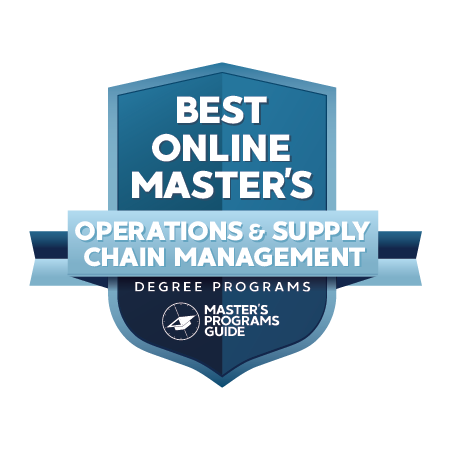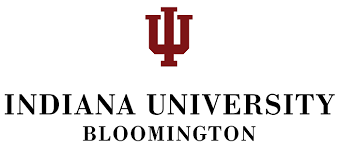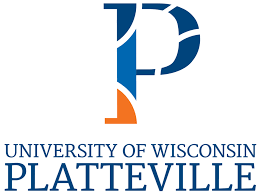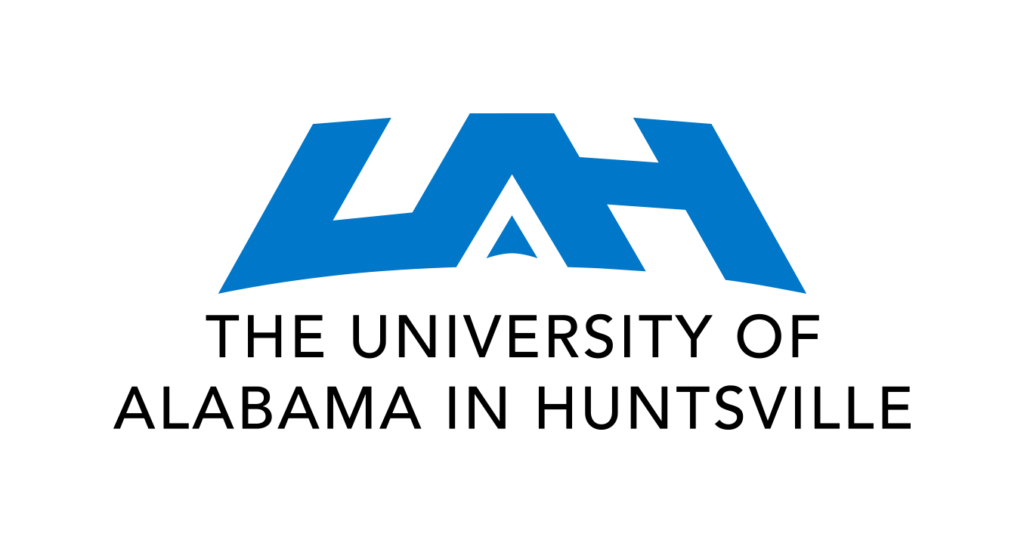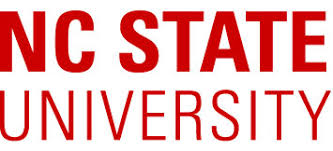Ready to find your ideal master's program?
www.mastersprogramsguide.com is an advertising-supported site. Featured or trusted partner programs and all school search, finder, or match results are for schools that compensate us. This compensation does not influence our school rankings, resource guides, or other editorially-independent information published on this site.
A Master’s in operations and supply chain management isn’t flashy or ostentatious. Yet it’s one of the more important fields of the global age.
The world’s economies are linked. They send supplies, manufactured goods, resources, and other products around the world 24 hours a day. Making all of those systems work together is the purview of operations and supply chain management. It’s the quiet puppet master of the global economy.
Below is our list of the best online Master’s programs in Operations and Supply Chain Management. Each of the master supply chain management online programs below is intended to help you achieve your career goals.
What makes supply chain management so powerful? It transcends so much.
The interdisciplinary role of supply chain management spans:
- logistics
- distribution
- purchasing
- manufacturing
- inventory management
- marketing
- product development
It involves diverse skills and knowledge, along with multicultural and global perspectives, notes North Carolina State University.
People in the field work for myriad companies. These include:
- air cargo
- parcel delivery
- warehousing
- distribution
- transportation
- manufacturing
Think about that in the Amazon age. Without knowledgeable people and machines working behind the scenes, a pillar of global commerce simply couldn’t exist.
It takes the kind of knowhow taught by the universities in our ten best online Master’s programs in operations and supply chain management to make all of that possible. And it’s not like the phenomenon shows any signs of slowing down. The world will continue to grow more dependent on these vast networks as time passes.
This makes a career in operations and supply chain management look like a good bet. A Master’s in the field a smart investment.
Studying operations and supply chain management includes a lot of supply chain analysis. Many programs base their instruction on actual examples. In some cases, like North Carolina State, students partner with real companies to solve actual issues they’re experiencing.
Work experience goes a long way in a master’s in supply chain management online.
The schools in our top ten work to include some form of it in their curriculum. Whether it’s working with partner companies, investigating case studies, or having students present research projects based on real issues, they do it all.
And they don’t have to travel far to find them. As Seb Heese, a professor of supply chain management at NC State puts it, “Operations and supply chain management are the core of everything in business.”
See Also: 10 Best Master’s in Industrial Engineering
COMMON APPLICATION AND ADMISSION QUESTIONS
The programs in our list are based online. A few offer classes on their respective campuses or a hybrid of both. Students can do their coursework on their schedules while juggling personal and professional obligations.
Online education often works in an asynchronous format. Students watch lecture videos, study, and complete their coursework when it’s convenient to them. Instructors will give deadlines for assignments and exams.
Many universities offer operations and supply chain management as a specialization within a Master of Business Administration (MBA). Those tend to have more relaxed admission requirements. MBA programs are designed to be friendly to working professionals.
Applicants won’t necessarily need to have an undergraduate degree in business or professional experience. They may not even need to take the GRE or GMAT. The minimum for any program is a bachelor’s degree. That’s often with a 3.0 GPA or better on a 4.0 scale. You’ll also need transcripts for all university coursework and a resume.
They may expect students to have a baseline knowledge in subjects like accounting, statistics, and management. This may necessitate some foundation courses that won’t count toward Master’s credit.
Some schools also require a personal statement or essay. This involves talking about your academic and professional background as well what you hope to achieve with the degree. They may also require personal and professional letters of reference. You may also need an interview with an administrator.
The universities that award an online master’s degree in operations and supply chain management tend to make applicants clear a higher bar. That can mean a specific type of undergraduate degree or a minimum amount of professional experience. Or, at the very least the completion of foundation courses.
The University of South Dakota’s program requires 54 credit hours, as an example. This seems like a lot until you realize 18 of those come from foundation courses that can be waived if you’ve completed similar classes.
Others are less flexible. North Carolina State requires two years of post-bachelor’s professional experience. That’s the most stringent of programs in our top ten, though. Most of the others are more approachable. Many of them are designed to be part-time. They take two to three years to complete. They can often take about a year and a half of full-time study.
Business schools that offer operations and supply chain management as part of an MBA often vie for accreditation. This is from the Association to Advance Collegiate Schools of Business (AACSB). Any school that has it is eager to share that only 5% of business schools earn the accreditation. This is a years-long process.
For students, it means the university has to meet certain standards and high-level practices. It’s a mark of quality assurance.
Something else you may find as you research these programs is language about where the university is authorized to operate. It’s a regulated industry. Universities must have the permission of states to offer instruction there.
If you live in Ohio but want to do Indiana University’s MS in global supply chain management, IU needs the state of Ohio’s authorization to do that. Double check that any program you’re interested in is allowed to work with you.
There’s one other wrinkle with online education. Some schools require exams to be proctored. This means a disinterested third party must supervise you during one. This service is often offered at libraries and schools. Check the National College Testing Association for accredited testing centers nationwide.
WHAT ABOUT FINANCIAL AID & SCHOLARSHIPS?
We tabulate the average cost per academic year for each university on our list. We use the school’s tuition as a base and factoring in financial aid opportunities for eachonline masters supply chain management.
Online programs tend to be cheaper than their on-campus counterparts. This is one of their selling points, aside from convenience. Tuition rates may still differ for in-state and out-of-state students at public universities.
When it comes to funding your education, the first place to start is your employer. Many companies reimburse employees for continuing education related to work.
The second thing to do is fill out a Free Application for Federal Student Aid. This is from the U.S. Department of Education’s Federal Student Aid program. For a preview of what aid you may qualify for, use the site’s FAFSA4caster.
The entire Federal Student Aid website is useful. It breaks down the various types of aid available to students. This includes a comprehensive overview of who gets aid. There’s also a section called Avoiding Scams. That brings us to one of the most obvious forms of financial aid. Student loans.
The Federal Student Aid website has a whole section on how to repay loans. There’s a handy Repayment Estimator. There are a lot more tools to avoid the sort of predatory student loans that have crippled people. Make sure to do the research.
The other most obvious forms of financial aid? Scholarships and grants.
Scholarships tend to be based on merit, grants on need. There tend to be fewer of both for graduate studies. The first place to start is whatever university you select. It will offer its own scholarships and grants, maybe some even specific to your program.
Not every university will be so helpful. They all at least have financial aid offices that will work with you to figure out how to pay for your education. It’s in their interest to do so. Beyond the university, check what scholarships your state offers. Also look at private industry. Operations and supply chain management is so specific. Every company works with it to some degree. There may be scholarships geared toward people working in that field.
There are numerous scholarship-information aggregators online. A good place to start, as always, is the Federal Student Aid website. This links out to scholarship sites and offers more information on how scholarships work.
Speaking of the government, veterans and active-duty military will want to research the Post-9/11 GI Bill. This provides funds for college studies.
Because these are distance-learning programs, chances are students won’t have opportunities to work as teaching or research assistants. They may still qualify for Federal Work-Study. This provides part-time work related to their field of study.
OUR RANKING CRITERIA
We have a time-tested four-part formula designed for ranking the best colleges in the nation. We’d love to share it with you. We prioritize four major factors when ranking online master’s in supply chain management degrees. Those are earnings potential, affordability, student satisfaction, and selectivity.
Reliable research and well-harvested data are the main ingredients in our recipe for success. We don’t make recommendations based on personal opinions, or financial incentives. Our revenue and content are separate. Sponsored schools have no impact on our rankings.
The only way to make it onto one of our lists is to have an incredible academic program! Want to know more? Check out our methodology page.
Check out our ranking of the ten best online Master’s programs in operations and supply chain management!
10 Best Online Master of Supply Chain Management Degrees
#1. KETTERING UNIVERSITY
MASTER OF SCIENCE IN SUPPLY CHAIN MANAGEMENT
Kettering University in Flint, MI, began 100 years ago as the School of Automobile Trades. Its goal was to train engineers and management personnel for the nascent auto industry.
The school was so aligned with that industry. It even renamed itself the General Motors Institute a few years after its founding. GM hasn’t owned it since 1982. These days the university makes STEM education a pillar of its mission.
Required Coursework
Its supply chain management degree is a Master of Science. If nothing else, moving products around the world is a science. Kettering’s Master’s is a 40-credit program of ten courses. It has seven core classes and three electives. It’s one of the best supply chain management masters online you will find.
Those last three provide a graduate certificate in:
- global leadership
- operations management
- healthcare management
- supply chain management (level one or two)
The curriculum of these supply chain management programs provides “a foundation to the field, insight into logistics, the importance of the customer relationship and how to manage it.” That’s per Kettering’s website.
The core coursework bears out that mission. There are classes like:
- Foundations of Supply Chain Management
- Supply Chain Logistics, Procurement and Risk Management
- Collaboration in Supply Chain Management
The core coursework ends with a capstone in Supply Chain Planning. In this, students either analyze a supply chain to suggest ways to streamline it. Or they can write an “in-depth response” to a supply chain challenge from a current or past workplace.
Students complete another trio of classes for their graduate certificate. There is some overlap with the core coursework. Supply Chain Management Level 2 includes Procurement and Risk Management, for example. Students opting for this certificate will find another supply-chain capstone project waiting for them.
Courses last six or eight weeks. Kettering strives to make its online learning program go beyond the meat-and-potatoes approach. It’s not just recorded lecture videos and group chats. Kettering faculty create “focused learning modules.” There are specialized accompanying materials to take what the school calls a “seminar approach” to learning.
Admissions Requirements
So how do you get into this exceptional master of supply chain management online?
It’s simple. You need an undergraduate degree with a 3.0 GPA or better, resume, and transcripts. No statement of purpose or professional references required.
Kettering is the most expensive online masters in supply chain management in our top ten. It’s about double the average cost of programs on our list. That said, the online master’s degree program is designed for working professionals. This degree program offers maximum flexibility. Students can work at their own pace with the same support on-campus students receive. That includes an advisor who works with them from enrollment through graduation.
#2. INDIANA UNIVERSITY–BLOOMINGTON
MASTER OF SCIENCE IN GLOBAL SUPPLY CHAIN MANAGEMENT
You’ll find another top master of supply chain management online at Indiana University.
Indiana University in Bloomington has been around for 200 years. Its devotion to online learning keeps the school au courant. U.S. News and World Report ranks it as one of the Best Online Graduate Business Programs (Excluding MBA).
These degree programs are through the Kelley Direct platform via IU’s Kelley School of Business. Students work in teams “in real time and around the world.” They work on actual business cases to get experience.
Required Coursework
The university’s MS in supply chain management is a 30-hour degree. This master’s degree in supply chain management takes as little as 15 months. Or it’s a maximum of three years.
IU says students in the online supply chain management masters will understand:
- material sourcing
- distribution and inventory management
- operations management
- accounting
- supply chains
- project management
The MS in Supply Chain coursework consists of ten classes. Four of them are focused on specific aspects of supply chain management:
- sourcing
- distribution and inventory management
- enterprise operations and planning
- project management
- process analysis
- lean six sigma
- strategic planning
- managing global supply chain networks
The coursework for this supply chain management degree includes a variety of management classes to help you build essential knowledge and skills within the supply chain.
You’ll be prepared for any career track in the supply chain industry by taking classes on topics like:
- finance
- strategic marketing
- supply chains
- strategic logistics management
- global sourcing
- supply chain resilience
- information systems
- supply chain analytics and statistical analysis
- financial analysis
There’s even one fully online supply chains course called Sustainable Operations. This “examines sustainability from an operations perspective, and studies related strategies and tools.”
A sample plan of study from IU includes courses (two per session in the fall, winter, spring, and summer). These each last 12 weeks.
It includes courses, two again, the following fall.
Everything is conducted via Canvas. This is one of the more popular platforms for online learning. Students find course materials, turn in assignments, talk to instructors, and communicate with fellow students. This platform is a great way to complete a master’s in supply chain management. It’s flexible for both full time and part time learners. It makes it easy to build critical thinking and communication skills even when completing an online program.
IU doesn’t throw students into the deep end with Canvas. The school gives them several opportunities to familiarize themselves with it. You can even take a short orientation course. Should something go wrong, IU has a responsive tech-support team.
Admissions Requirements
To get into the program, the Kelley School of Business requires transcripts. There is no minimum undergraduate GPA or major specified. You’ll also need:
- a personal statement
- resume
- personal/professional recommendations
- GMAT or GRE scores
- an interview
Applicants with at least five years of full-time professional experience are eligible to apply for a GMAT/GRE waiver. This is a process IU describes as “competitive.” People with at least ten years of experience are preferred. Prospective students find out if they’ve been accepted within three weeks.
The cost of IU’s MS degree is lower than the average and median price per credit for the ten best online master’s programs in operations and supply chain management.
Students are assigned a career coach to guide them throughout their time at IU. That’s from assisting with course selection to career planning for what comes after graduation.
#3. EMBRY-RIDDLE AERONAUTICAL UNIVERSITY
MASTER OF SCIENCE IN LOGISTICS AND SUPPLY CHAIN MANAGEMENT
“Aeronautical” is right there in its name. Embry-Riddle’s history as an aviation and aerospace school is plain.
The association works for the university’s MS in logistics and supply chain management. Embry-Riddle’s founders recognized the business potential that accompanied the aviation boom.
100 years since the university’s founding, planes remain a critical piece of logistics and supply chains.
Embry-Riddle’s online Master’s in logistics and supply chain management is top ranked by U.S. News and World Report for Best Online Graduate Business Programs (Excluding MBA). It is a 30-credit-hour program.
Required Coursework
The graduate degree contains eight core courses and two electives to prepare you for a career as a supply chain manager.
Online classes that supply chain professionals will take in this online master of science include:
- Transportation Management
- Purchasing for Logistics and Supply Chain Managers
- Management Science
- Information Analytics
- Visualization in Decision Making and Production
- Procurement in the Aviation and Aerospace Industry (Embry-Riddle’s forte)
The core coursework concludes with a capstone in Logistics and Supply Chain Management. This includes a comprehensive higher education exam to test how much knowledge students have retained.
Electives in the masters in supply chain management online include courses like:
- Operations Research
- Business Research Methods
- Project Management
- Philosophy, Principles, and Practices of Management of Quality.
Students will be prepared to apply for a number of certifications:
- Certified Supply Chain Professional (from the Association of Operations Management)
- Certified Professional Logistics (from the International Society of Logistics)
- Certified Professional in Supply Chain Management
The school notes its program prepares students for management positions in “government, military, and the private sector.” These are three worlds with close ties to Embry-Riddle. Those close ties help students who are veterans or active military. The school offers discounted rates to them. It operates at 90 military installations around the world.
Admissions Requirements
All prospective students are required to have prerequisite knowledge in:
- management
- accounting methods
- finance
- quantitative methods
- economics
- marketing
That knowledge can be validated via transcripts of undergraduate or graduate coursework. You can also submit test scores from CLEP, DSST, or PEP exams. Another option to get into this master of supply chain management is the completion of Embry-Riddle’s Business Foundations introductory course.
#4. UNIVERSITY OF MARYLAND GLOBAL CAMPUS
MASTER OF SCIENCE IN MANAGEMENT – ACQUISITION AND SUPPLY CHAIN MANAGEMENT SPECIALIZATION
Until the summer of 2019, the University of Maryland Global Campus went by the more awkward name University of Maryland University College. This was a moniker so perplexing it had to be explained near the top of the school’s Wikipedia page.
It comes from pedantic British nomenclature that makes sense only to people in academia.
“Global Campus” reflects the University of Maryland’s mission. It sounds way cooler too.
Required Coursework
The school offers a MS in management with a specialization in acquisition and supply chain management. If you like acronyms, a MSGSM program with a SCM concentration. It’s one of the top online master supply chain management programs you will find.
It’s a 36-credit program “designed for mid-career professionals”. It’s meant to prepare those with at least two years work experience for leadership roles.
Newbies are also welcome to this supply chain management master online. Those who are looking to “build a foundation in the strategic and operational aspects of the end-to-end supply chain and procurement functions” will like this program.
Perhaps the most interesting part of the online master of science program is this. The curriculum draws from projects “sponsored by real clients.” There are even case studies from actual supply-chain management issues.
Students have studied an actual collaborative supply chain from a candy company. They’ve used simulations to serve analyze problems in chains. The list goes on. Even the capstone project is designed to provide students with special insight into actual supply chain management jobs.
The thinking is that real-world curriculum translates into real-world know-how after graduation. You’ll gain the strong decision making and problem solving skills needed with this master’s degree that translate well to the real world. Oh – and you can study at your own pace.
Required Coursework
The master’s coursework includes close training from renowned faculty members. It readies graduates to take certification exams. Those include ones from:
- the American Production and Inventory Control Society
- Council of Supply Chain Management Professionals
- Defense Acquisition Workforce Improvement Act
- National Contract Management Association
The coursework is divided among core and specialization courses. There is a zero-credit introductory course getting the ball rolling. This is Orientation to Graduate Studies at UMGC. There are only three core courses:
- Organizational Theory and Behavior (six credits)
- Financial Decision Making for Managers (three)
- Statistics for Managerial Decision Making (three)
The seven specialization courses get into the nitty-gritty. These include:
- Purchasing and Materials Management
- Integrative Supply Chain Management
- Contemporary Logistics
It all leads up to a three-credit Strategic Management capstone. Students investigate “how strategy interacts with and guides an organization within its internal and external environments.” The course description explains how much deeper it goes than that.
The capstone mixes case studies and course material with what students have learned in the program.
Admissions Requirements
UMGC recommends students have “strong writing and analytical skills.” They should have a background in statistics, finance, and accounting. Those who lack can take a trio of introductory courses:
- Introduction to Research Methods
- Introduction to Accounting & Financial Management
- Effective Graduate Writing
Beyond that, prospective students need the usual stuff. That includes an undergraduate degree and transcripts. No GRE or GMAT is required.
#5. LEHIGH UNIVERSITY
MASTER OF BUSINESS ADMINISTRATION – OPERATIONS AND SUPPLY CHAIN MANAGEMENT SPECIALIZATION
Bethlehem, PA, was once synonymous with manufacturing. At the peak of its 146-year run, Bethlehem Steel was a giant of American industry. The city was also home to the Lehigh Valley Railroad. This was a force during its heyday. The man who made it a success, Asa Packer, used his wealth to found Lehigh University.
Shuttling coal on trains around the country in the 19th century required supply-chain logistics.150 years later, Packer’s university offers an MBA with a concentration in supply-chain management.
Lehigh brands its program the “FLEX MBA.” This underscores its flexibility for working professionals.
Required Coursework
The 36-credit program of this flex MBA program features 21 credits of core classes. These include:
- Financial Reporting for Managers & Investors
- Managing Information
- Basic Statistics for Business & Industry
There are 15 credits of electives. Twelve hours of those electives come from the concentration. It begins with three required courses:
- Demand and Supply Chain Planning
- Strategic Supply Management
- Transportation and Logistics Management
The concentration work concludes with one more course from a selection of four options:
- Negotiation
- Applied Supply Chain Models
- Business Analytics for Decision Making
- Special Topics
Degree work concludes with an intense capstone course. It involves “a simulation, case presentations, and [a] cross core project.” The average time to complete the whole program is 42 months. It ranges from 24-72.
Coursework is delivered online via a couple of methods:
- ClassroomLIVE (synchronous, real-time lectures as they happen)
- Classroom Online (streaming video of recorded lectures)
All classes in the core curriculum are available via ClassroomLIVE. A “limited number” of electives are available via Classroom Online. Lehigh says that students can choose one platform or mix and match them. The coursework for the MBA is online. The curriculum includes extensive hands on work to prepare students for a career as a supply chain manager.
All students must attend a “fun and informative” weekend orientation in Bethlehem. This is at the beginning of the supply chain program. It allows them to meet their fellow students and participate in a case-study collaboration.
Admissions Requirements
Getting into this top ranked master’s program requires the usual stuff from supply chain students:
- official transcripts
- resume with relevant work experience and practical skills
- proof of English proficiency
- GMAT/GRE scores (some may qualify for a waiver)
- letters of recommendation
- an essay summarizing your career objectives, work experience, and “leadership experience and skills.”
Prospective students will need prerequisite business knowledge from additional coursework. This should be in:
- financial accounting
- statistics
- principles of economics
- statement of computer literacy
However, Lehigh notes in big capital letters that “prerequisites DO NOT NEED TO BE COMPLETED” prior to enrolling in the MBA. The university has several courses that will bring students up to speed.
Students benefit from countless resources. In fact, these students resources are the same ones the student body on campus receive. The total cost of this program when completely online is much lower than what you will find on campus, however.
#6. UNIVERSITY OF SOUTH DAKOTA
MASTER OF BUSINESS ADMINISTRATION – OPERATIONS AND SUPPLY CHAIN MANAGEMENT SPECIALIZATION
The University of South Dakota lies in Vermillion. It is less than ten miles north of the Missouri River and the Nebraska border.
Distance learning is a great option (even though USD has a lovely campus). U.S. News and World Report ranks it as one of the Best Online MBA Programs. It is also one of the Best Online MBA Programs for Veterans.
Of course, this online master in supply chain management is one of the best to prepare students to pursue careers in a variety of fields. You’ll learn fro renowned faculty and explore more options for your degree than you ever thought possible.
This is offered as a specialization within the MBA from the Beacom School of Business. This college of business is AACSB-accredited.
This regionally accredited college is nationally recognized as offering one of the best online degrees for the supply chain field.
Required Coursework
USD’s operations and supply chain management program “includes the study of:
- network relationship integration
- quality and process improvement methods
- project management
This is all with the goal of maximizing the efficiency of a firm’s resources.
Students may learn elements of Lean Management and Six Sigma to stay on trend. The degree requires 36-54 credit hours of coursework aside from the six sigma training. This which seems like a massive spread. 18 of those hours are “foundation courses.” That includes classes like Foundations of Accounting, Foundations of Finance, etc.
These can be waived if graduate students have completed similar coursework (like an undergrad business degree).
The foundation courses in these graduate programs are a little different from their undergraduate counterparts. They cram everything in a shorter amount of time.
If students have done some of the prerequisite courses, they’ll work with an advisor to create an individualized study plan.
They can also take challenge exams in this supply chain management program. That’s to see if they test out of the prerequisites.
The actual degree coursework amounts to 36 credit hours. 27 come from core classes and nine from the supply-chain specialization.
The online courses provide the broad knowledge expected of an MBA. Topics include:
- business analytics
- managerial finance
- accounting
- marketing
- data analysis
- economics
- logistics transportation
- strategic procurement of raw materials
- information technology
- risk management
- international trade
- quality management in public sectors
You’ll also take classes like Quantitative Analysis and Operations Management. The specialization has one required class. That’s Supply Chain Management. Then students select two elective courses from a list of five for the remaining credits. Among them are the aforementioned Lean Management and Quality and Six Sigma Management. You can pursue a six sigma certification as a graduate certificate as well.
There’s also a Topics in Business option. This is “devoted to a particular issue in a specified field.” It features guest lecturers or experts as instructors. That requires approval by a program coordinator.
Admissions Requirements
Admission to Beacom’s online MBA in logistics management requires an undergrad degree with a minimum 2.7 GPA. You’ll also need:
- transcripts
- GMAT scores (applicants can apply for waivers)
- three letters of recommendation (at least one needs to be professional)
- a statement of purpose
- resume
#7. UNIVERSITY OF WISCONSIN–PLATTEVILLE
MASTER OF SCIENCE IN INTEGRATED SUPPLY CHAIN MANAGEMENT
Some universities offer supply chain management as a concentration within another degree. The University of Wisconsin in Platteville not only awards an MS in integrated supply chain management. It also offers six areas of emphasis within it:
- analysis (find ways to improve the supply chain)
- customer relationship management (keeping and attracting customers)
- logistics (moving and storing goods)
- management (leadership theory and communication)
- operations (a design POV to production and manufacturing)
- purchasing (understanding all aspects of procurement)
Platteville itself has history with supply chain management. The city owes its existence to a mining boom in the early 19th century. In fact, increasing population in the area led to the founding of the Normal School in 1866 to train teachers. It was the first such institution in the young state.
That school eventually became the University of Wisconsin–Platteville. The issues at the heart of the university’s MS in integrated supply chain management go back to the city’s founding more than 150 years ago.
Nevertheless, this program is outstanding in its mastery of the subject area. It is discipline focused and offers extensive hands on experience. Students build the practical skills they need to become industry leaders.
Required Coursework
The program requires 30-33 graduate credits. It begins with two foundational courses:
- International Supply Chain Management
- Supply Chain Management
Nine core courses remain. That includes course credits for thesis research, a seminar paper, and a capstone in Integrated Supply Chain Management.
Other courses include:
- Organizational Change Leadership: Theory and Practice
- Purchasing Management
- Supply Chain Logistics
The program takes two years two complete
Coursework is completed via the Canvas platform. UW-Platteville offers a sample course in it so prospective students can get a sense of how it works. You can request information about this program and application deadline/requirements online.
Admissions Requirements
UW-Platteville’s MS has more rigorous admission standards than an MBA. The university requires a bachelor’s degree—with a minimum 2.75 GPA. It should be in a related field:
- business
- industrial technology management
- industrial engineering, etc
Other undergrad degrees are okay if students can “demonstrate extensive experience in one of the areas of emphasis.”
Applicants who can’t do that may still get in through “the comprehensive review process.” The good news?
No GRE or GMAT, personal statement, or letters of recommendation are required.
The university offers program start dates in the spring, summer, and fall. Prospective students have several opportunities during the year to begin their studies.
#8. UNIVERSITY OF ALABAMA IN HUNTSVILLE
MASTER OF SCIENCE IN SUPPLY CHAIN AND LOGISTICS MANAGEMENT
Huntsville, AL, has long been a technological hub. That’s thanks to its history with the space program. It’s the home of Space Camp, after all. And missile development, along with a more recent push into biotech.
That carries over to the University of Alabama campus in the city. As you might expect, it includes its supply chain and logistics program.
The Army Materiel Command, NASA, and other defense and space organizations have partnered with the UA-Huntsville for its supply chain and logistics expertise. It’s “Why MS-SCLM at UAH?” even reads like a pitch for consulting services from the university than a list of reasons students should study there!
Required Coursework
The 30-credit-hour program is designed for working professionals. These programs in supply chain management are ideal for aspiring operations research analysts looking for hands-on logistics programs.
Courses can be completed in 22 months of part-time study (or 12 months full-time). All of it is online. This is without any on-campus meetings or exams. The graduate courses follow a curriculum that includes discussions all online so you can complete the degree in less time.
UAH offers start times for the manufacturing and service degree throughout the year. Those are in the spring, summer, and fall. Students don’t have to wait for long to begin their studies once they’re accepted.
Admissions Requirements
UAH keeps its simple, requiring a bachelor’s degree in any field, but with a “demonstration of competency in statistics.”
The university also requires the GMAT (the GRE is accepted). Waivers are available for people who have another master’s degree or five years of professional work experience. The most recent average among students is 7.85 years—and a 3.0 undergrad GPA. Applicants with “exceptional” test scores and undergrad GPAs are considered for the Graduate Student Fellowship Scholarship. This can pay up to 30% of their tuition.
Once accepted, students will take nine required courses like:
- Decision Modeling
- Quantitative Methods
- Supply Chain Management Systems
That’s along with a capstone course. This involves a team-based practicum project that applies what students have learned to real-world problems. The tenth class is an elective (the university recommends Contract Pricing & Cost Analysis). Students who vie for the optional thesis skip that. Go-getters who want to take the thesis route need to declare their intention. That’s before completing 12 credits of graduate study.
#9. NORTH CAROLINA STATE UNIVERSITY
MASTER OF BUSINESS ADMINISTRATION – SUPPLY CHAIN MANAGEMENT EMPHASIS
NC State is based in Raleigh, NC. It is one-third of the state’s tech-heavy “Research Triangle” that includes Durham and Chapel Hill.
As the university’s website notes, the area’s big employers—IBM, Cisco Systems, and GlaxoSmithKline among them—are some of the biggest hirers of NC State graduates. This school has an outstanding online master in supply chain management.
Online students can get a feel for the area when they come to Raleigh for the two mandatory on-campus “residencies” they complete during the program. Each lasts three days. Students complete the first one during their first semester and the second prior to graduation.
Why force distance learners to make the trek? The residencies aim “to provide important lessons on non-verbal communication, presentation, and networking skills.” Active-duty military can waive the requirement and take another elective.
Required Coursework
NC State offers supply chain management as one of five emphasis areas. This is within its 40-credit online MBA program. Students take six credit hours of coursework in supply chain management. They can dive deeper into it via the nine credit hours of electives (three to five electives) to pursue careers they’re interested in. Among the supply-chain courses:
- Supply Chain and Logistics Management
- Analytical Supply Chain Management
- Strategic Operations Management
- Planning and Control Systems
Core coursework accounts for 19 hours. Subjects are divided into three areas:
- finance and markets
- analyzing the value chain
- managing the organization.
At a more macro level, the university describes the core curriculum as focusing on technology, business processes, and practical applications. These are all expressed via a mix of coursework, simulations, and team projects.
All of the coursework builds to a practicum taken during the final term. Students work in teams to address an issue from a real partner company from the Supply Chain Resource Consortium. Students complete their coursework via WolfWare. This is the university’s online learning platform. It incorporates popular learning tools like Moodle and Blackboard Collaborate. That’s along with non-proprietary stuff like streaming video and discussion boards.
NC State describes the process as asynchronous with synchronous elements. This means students complete their studies at a time convenient to them/ But its all within deadlines set by an instructor. The university also notes that students should expect to spend two to three hours working for every hour spent “in the virtual classroom.”
Unique to NC State is the Supply Chain Resource Cooperative. This is an “industry-university partnership.” It connects “students, thought leaders, and industry professionals to create a full circle of impact, innovation, and real-world solutions.” The SCRC offers a way for companies to tap into the university’s resources.
Students can get experience before they enter the workforce within this supply chain program. They learn how to develop new products and improve efficiency across the spectrum.
The organization has a big annual event called the SCRC Gallery Walk. This attracts representatives of 20 supply-chain companies to hear research presentations from students. These are based on their practicums and other projects.
“Regular interaction with real-world companies is key,” notes the program’s website. It adds that students meet with company reps, conduct mock interviews, and give presentations as part of that interaction.
Admissions Requirements
Getting into the program requires a bachelor’s degree with an undergraduate statistics course. One can be taken via NC State prior to graduate studies. You also need two years of full-time professional employment post-undergrad. Online students don’t have to take the GMAT or GRE, though.
#10. UNIVERSITY OF HARTFORD
MASTER OF BUSINESS ADMINISTRATION – SUPPLY CHAIN MANAGEMENT CONCENTRATION
Another excellent master supply chain management online is at the University of Hartford.
Despite its municipal name, the University of Hartford is a private university with a short history by university standards. It began as a commuter school after World War II to accommodate veterans taking advantage of the G.I. Bill.
Its hometown is a manufacturing center—it was home to conglomerate United Technologies for decades. The school’s supply chain management program feels appropriate.
UHart’s AACSB-accredited Barney School of Business offers supply chain management as one of nine possible specializations within its MBA. Other MBA programs expect students to have some background in business. The core of UHart’s program is created for those who don’t.
The program is open to professionals from a number of fields. All of them can push their careers forward with the help of an MBA. UHart’s MBA is meant “to provide a broad exposure to the knowledge, skills, and values needed by successful managers.” Management is emphasized in the MBA’s core curriculum. The school even offers free, self-paced educational modules in statistics, accounting, and finance. Enrolled students can do any necessary catch-up work for their MBA studies.
Required Coursework
This is a 12-course 36-credit program. It takes two years of part-time work to complete. The curriculum is built around nine required courses and three electives. This is where the supply chain management specialization happens.
The program offers core classes you’d find in MBA studies like:
- Managerial Statistics and Analytics
- Organizational Leadership
- Global Strategic Management
- Managing Organizational Processes
- Accounting for Decision Makers
All of the program’s supply chain management coursework comes from three electives:
- Bargaining and Negotiations
- Supply Chain Management
- Logistics Engineering
The courses are open to students from the Barney School and the College of Engineering, Technology, and Architecture. Course instructors come from both colleges. Coursework concludes with a capstone. It integrates “functional approaches and environment issues by having students make strategic business decisions.” UHart students use the Blackboard learning platform for their online coursework. Th university also offers the courses on campus for students who live in the Hartford area.
Admissions Requirements
Students need only have a “working knowledge” of computers, word-processing software, and spreadsheets. They’ll also need:
- transcripts of undergraduate studies
- GMAT scores (waivers are available in “extraordinary circumstances”)
- a letter of intent
- a resume
FAQ
How much can I make with an online master of supply chain management?
A master of supply chain management online will prepare you for a wide variety of fields. Because of this, it’s tough to say what your average salary will be. Salary information is hard to find, even by browsing Bureau of Labor Statistics data. However, you have a lot to look forward to.
Kettering University suggests that the average supply chain director salary in the US is between $105,000 and $155,000. The Bureau of Labor Statistics cites a median salary for logisticians. This is around a median salary of $77,030 per year with an average growth rate of 28% – much faster than the national average.
There is also data for purchasing managers, buyers, and purchasing agents. The median salary for these professionals is around $75,410 per year. Still, not too shabby!
Another area to look at is operations research analysts. These professionals make a median salary of $82,360 per year. They also have an exceptional growth rate of 23%.
Is getting a masters in supply chain management worth it?
If you complete a supply chain management degree, you’ll open the door to a wide variety of career prospects in the supply chain industry. There are countless supply chain management jobs to choose from. Supply chain managers are the most obvious, but other common titles include those in:
- Logistics management (logistics managers)
- Strategic procurement
- Business analytics and financial analysis
- Global sourcing and supply chain analytics
- Operations research analysts
- Risk management
- Engineering management
- Demand forecasting
- Operations planning
- International trade/international logistics
As you can see, supply chain professionals are in high demand and a master’s in strategic logistics management can help make these jobs possible. Whether you’re interested in working in corporate environments or the public sector, there are plenty of career opportunities to choose from.
What is the best online course on supply chain management?
To earn a masters of supply chain management online, you will need to take courses in subjects like:
- Logistics transportation
- Manufacturing and service business practices
- Supply chain design and supply chain analysis
- Strategic planning
- Operations planning
- Quantitative tools in supply chain management
- Decision-making in supply chain management
- Exploring new markets in a global environment
- Sustainable business practices
- Improving organizational performance
- International trade for business settings
- Business Statistics
- Risk management
- International business
- Project management
- Demand forecasting and demand planning
- Service operations
- Logistics information systems
- Statistical analysis/data analysis
You may also be able to pursue specialization courses in things like information systems, machine learning, and international logistics.
Many schools even have dual degree options and elective courses that will allow you to go far beyond what you learned in your four year bachelor’s degree!
Can I study supply chain management online?
Of course! The programs in supply chain management we’ve already told you about are great places to start. However, you might also consider programs offered by schools such as:
- Boston University
- Syracuse University
- Walton College
- University of Southern California
- Penn State University (Penn State World Campus)
- University of Nebraska Lincoln
- University of Maryland College Park
Do I need to look for an accredited online master in supply chain management?
Accreditation is important when you’re looking at a supply chain program. The best online masters of supply chain management will have regional accreditation. This might be from:
- the Higher Learning Commission
- Southern Association of Colleges and Schools Commission on Colleges
- Northwest Commission on Colleges and Universities
Of course, accreditation from the Association to Advance Collegiate Schools of Business (AACSB International) is always helpful, too!
The top schools, like Penn State World Campus, University of Southern California, Boston University, and Syracuse University have this sort of accreditation.
Accreditation tells you that a school’s graduate courses are up to snuff and that you will be prepared for a variety of career opportunities.
OTHER NOTABLE PROGRAMS
#11. Georgia College and State University
Location: Milledgeville, GA
Degree: Master of Logistics
Net Price: $20,478
Website
#12. University of Texas–Dallas
Location: Dallas
Degree: MS in Supply Chain Management
Net Price: $9,989
Website
#13. Michigan State University
Location: East Lansing, MI
Degree: MS in Supply Chain Management
Net Price: $16,227
Website
#14. Arkansas State University
Location: Jonesboro, AR
Degree: MBA – Supply Chain Management Concentration
Net Price: $13,459
Website
#15. Portland State University
Location: Portland, OR
Degree: MS in Global Supply Chain Management
Net Price: $13,758
Website
#16. Fontbonne University
Location: St. Louis
Degree: MS in Supply Chain Management
Net Price: $21,861
Website
#17. University of Washington
Location: Seattle
Degree: Master of Supply Chain Transportation & Logistics
Net Price: $9,765
Website
#18. University of Wisconsin–Whitewater
Location: Whitewater, WI
Degree: MBA – Supply Chain Management Concentration
Net Price: $12,094
Website
#19. Rutgers University
Location: New Brunswick, NJ
Degree: Master of Science in Supply Chain Management
Net Price: $16,295
Website
#20. Golden Gate University
Location: San Francisco
Degree: MBA – Global Supply Chain Management Certificate
Net Price: $15,840

